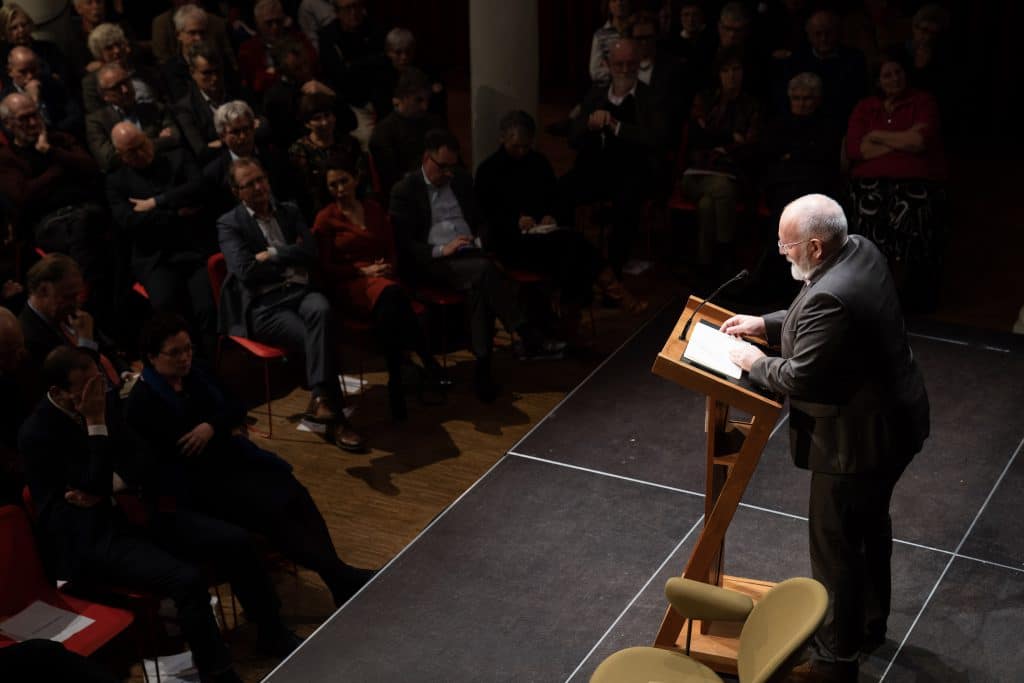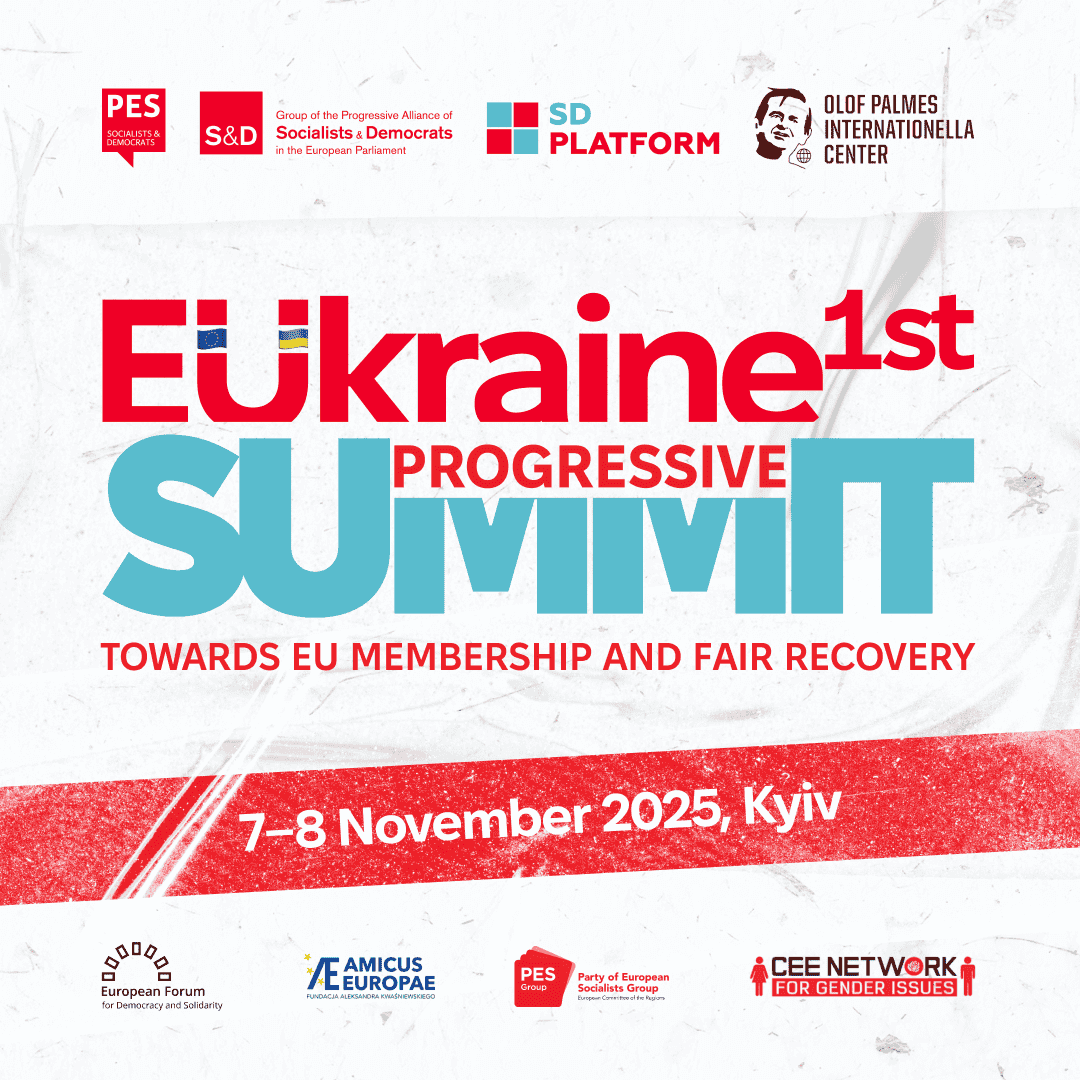Floods in East Africa, the 25e UN Climate Change Conference (COP25), the presentation of the European Green Deal in the European Parliament and Gretha Thunberg voted Time Person of the Year. Climate change was 'hot' this month. We update you on what happened in the last few weeks!
COP25
Between 2 and 13 December, Madrid held COP25 place. Four years after the Paris Climate Agreement (2015), the main targets have yet to be fleshed out. After very long meetings, delegates only reached a final agreement on 15 December. In the words of Bas Eickhout, delegation leader on behalf of the European Parliament, this agreement is nothing but "disappointing". Concrete agreements have still not been made, but countries are going to tighten up their 2030 climate targets as much as possible before the next COP, November 2020 in Glasgow. "The gap between what science tells us to do and what politicians deliver so far at climate summits is huge," Eickhout said.
Commission presents Green Deal
In the same period, at Wednesday 11 December, the new President of the European Commission, Ursula von der Leyen, presented in the European Parliament the Commission's plans to be climate neutral as Europe by 2050. The European Green Deal should make this a reality. From now on, all European decisions and laws should be dominated by the ambition to become climate neutral. This requires action in all sectors of the economy and will therefore affect agriculture, energy, industry, transport and trade, among others.
During the presentation of the Green Deal, attention was also paid to the cost picture. Turning Europe into a climate-neutral continent would require some 260 billion euros, which is a quarter of the European budget. A lot of money, but as First Vice-President Timmermans also said during the Den Uyl lecture on 2 December, the cost of doing nothing is just as great. Timmermans expects that part of this bill can be paid through CO2 allowances and, in addition, the European Investment Bank (EIB) will play a big role in the climate plan.
European Council on the Green Deal
On 12 and 13 December, the European Council took place, bringing together government leaders of EU member states to discuss the European Green Deal. It took a long time, but eventually the government leaders came to an agreement. Poland, Hungary and the Czech Republic in particular seemed to be stymied, as they were not convinced they could keep up with member states that already had cleaner industries.
Hungary and the Czech Republic did get on board after long discussions as their demand, support for nuclear power, was approved after considerable debate. Government leaders pledged to recognise nuclear power as an option to reduce C02.
Poland is in an exceptional position and is the only country not (yet) participating, but according to Von der Leyen, this does not change the timetable. Poland runs on brown and coal for 80% and therefore demanded more financial support from the EU to build nuclear power plants and transition to a cleaner and more sustainable industry. EU government leaders did not yet fully agree on this, and so it will get an exemption for now. These discussions do show that for a good climate policy, it is necessary to be able to offer suitable alternatives, especially for people at risk of losing their jobs due to the climate transition.
What exactly is the Green Deal?
The Green Deal is a kind of roadmap setting out the measures to be taken to transform Europe into a climate-neutral continent. Climate neutral means offsetting all greenhouse gas emissions, meaning that emissions do not contribute to climate change. Thus, the EU's net emissions will then be zero. For this, the Commission wants to tighten the current target of 40% less emissions to at least 50% and preferably 55%.
In March 2020, the commission will present its climate bill, which also requires the agreement of the European Parliament and the heads of government of EU member states.
The Green Deal's plans will be further developed in the coming years. The Commission has fifty steps drawn up to meet the target by 2050 involving all sectors. For example, the European Commission wants one million charging stations by 2025, needed for 12 million low- or zero-emission cars. In addition, forests need maintenance and many new trees need to be planted. That these concrete plans are needed Timmermans stressed during the Den Uyl lecture. "We must also take measures that directly appeal to people. There is global support for our climate plans, but not specific. As soon as it becomes specific, support can evaporate. You will have to link it to measures that people see are to their direct personal benefit."
Climate justice
During the Den Uyl lecture, Timmermans added, to loud laughter, a sixth K to the five K's that would be the origin of the social democratic struggle movement. Besides king, capital, pub, armed forces and church, 'climate change' should also be included. This is because climate change, like the other K's, equally unfair. It affects the most vulnerable groups. They are particularly exposed to harmful effects of climate change and environmental degradation. The Green Deal, for which Timmermans is responsible, argues that no individual or region should be left behind in this major transition. It is a new growth strategy to lead to a just and prosperous society. Improving people's well-being is paramount and this does not just mean a clean environment, but also involves people working in polluted factories or coal mines. In addition, the Just Transition Fund will have to ensure that no one is left behind.
Africa
Timmermans also stressed during the Den Uyl lecture that we need to be globally active and pay special attention to countries in Africa. "If the outlook for Africa is unfavourable then people there will vote with their feet and those are migration flows that can have very big impacts on us and other regions." Also at COP25, delegates from African countries called for recognition of Africa's specific needs and special circumstances. With our research, Climate Justice: African perspectives, we as FMS will also start contributing to this.
Photo: Labour Party




